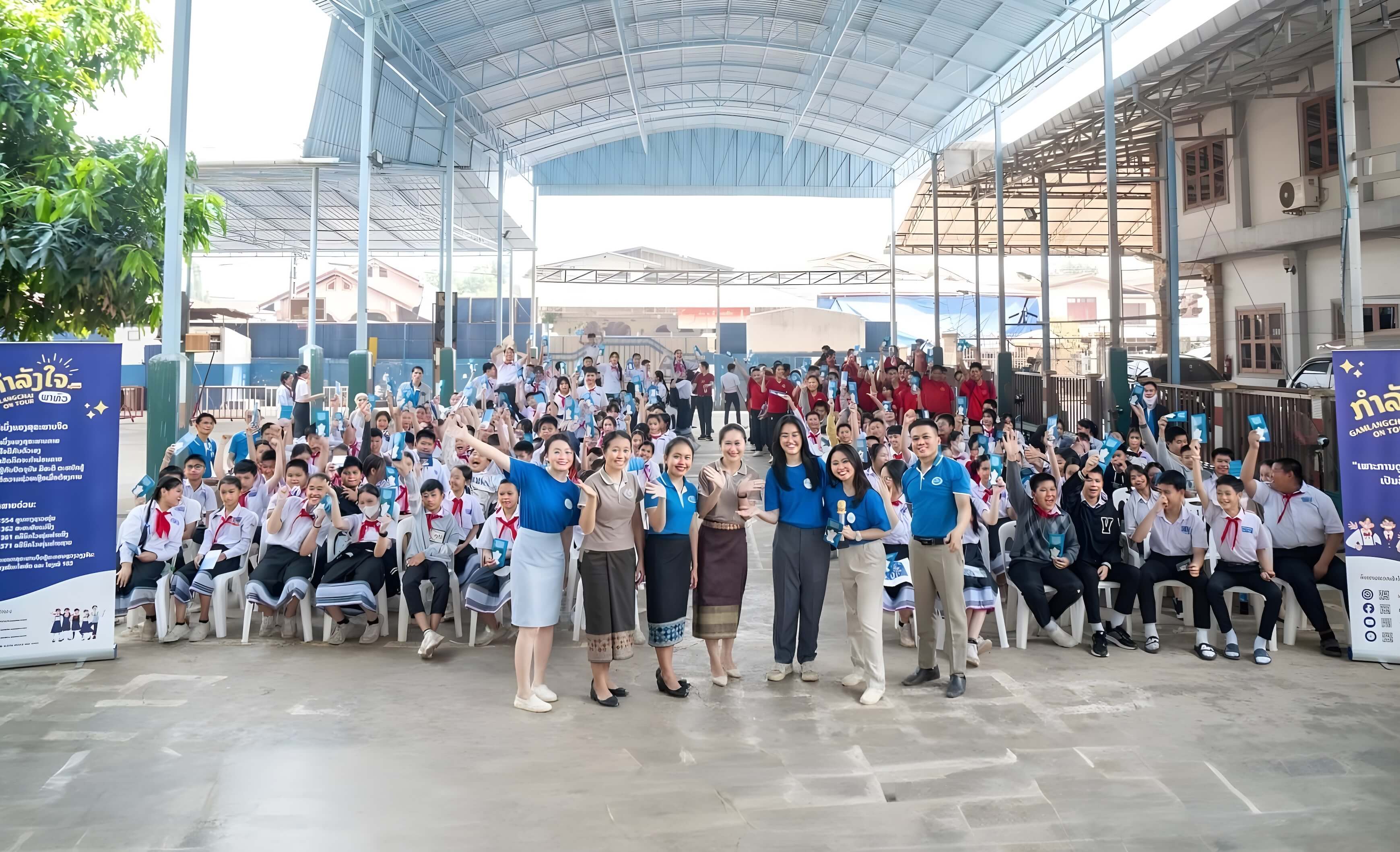



As the COVID-19 pandemic raged across the globe in 2020, nations imposed containment measures with varying success levels. For every decision to implement strict measures to help save lives, there have been devastating impacts on livelihoods and economies.
Now, countries are slowly rolling out several approved COVID-19 vaccines to inoculate front liners, health workers, and vulnerable populations. The virus has mutated to other variants that are feared to be more infectious. Governments still grapple with tough decisions to further contain transmission while mitigating the pandemic’s socio-economic impact. The ASEAN Comprehensive Recovery Framework (ACRF) and its Implementation Plan, adopted by the 37th ASEAN Summit on 12 November 2020, lays out the implementation of five broad strategies to support the ASEAN region in their whole- of-community responses to COVID-19. Included in the ACRF is Broad Strategy 1 on Enhancing Health Systems.
In line with the ACRF, the health sector, with valuable support from the German Corporation for International Cooperation or GIZ, launched a series of webinars on the region’s COVID-19 response. It kicked off with “Enhancing Health Systems and Resilience in the Context of the ASEAN Comprehensive Recovery Framework” on 15 December 2020. Expert panel members from ASEAN Member States and distinguished resource persons from various international organisations deliberated on the priorities under Broad Strategy 1.
As noted by ASEAN Deputy Secretary-General for ASEAN Socio-Cultural Community Kung Phoak in his opening remarks, “It is essential that we strengthen cooperation on capacity building interventions on public health emergency preparedness and response; continually share critical lessons learned and good practices; coordinate resource mobilisation including technical assistance; and engage more in policy dialogues relevant to the latest development on COVID-19 including drug and vaccine development, security and self-reliance.”
The outcome of these webinar series is a set of policy briefs, which will be elevated to the ASEAN Health Sector for consideration, to strengthen the collective response to the pandemic.
Dr. Eduardo Banzon, Asian Development Bank (ADB) Principal Health Specialist, said that non-pharmaceutical interventions would only slow down the virus’s transmission, not stop it. The ADB has provided support programs to cushion the pandemic’s economic impact. Banzon emphasised, however, that “it is a health emergency crisis and for it to end, a health system-based solution must be delivered.” He added that “strengthening health systems, sustained financing and implementation of universal health coverage, and timely access to safe and effective vaccinations, combined with non-pharmaceutical interventions are needed to stop the spread of COVID-19.”
“Digital Technology for the Enhancement of Healthcare Delivery” was the second webinar’s focus on 15 January 2021. Shared during the presentations was the use of digital technology in contact tracing, the most critical measurement in containing the coronavirus. Dr. San-Il Kim, Head of the Digital Transformation Division and Senior Management Member of the Swiss Federal Office of Public Health, described how Switzerland used the SwissCovid App effectively early in the pandemic. “The app was released in summer 2020. The aim was to be anonymous, as the app system does not use personal data. The COVID code activation system only saves the user’s information related to (the) contact tracing team,” explained San-Il Kim. He added that Singapore first brought up the idea of digital contact tracing through Bluetooth technology.
The series’ third webinar, held on 19 January 2021, deliberated on the “Safe Reopening of Economies and Communities in the New Normal Era.” The discussions examined strategies that countries and communities can adopt to balance protecting public health and get the economy back on track.
Dr. Masaya Kato of the World Health Organization (WHO) Regional Office in the South East Asia Region stressed that countries must prioritise strengthening their health systems. He added that the Asia Pacific Strategy for Emerging Diseases and Public Health Emergencies provides an excellent framework.
Kato said WHO has developed guidelines for implementing and adjusting public health and social measures in the context of COVID-19.
“To inform the calibration of public health and social measures, we recommend conducting a situational assessment using the local data of each country and each sub-national level,” Kato said. The situational level, he added, is determined by two variables, the level of transmission (i.e., no transmission, sporadic, cluster, or community transmission) and the health system’s response capacity (e.g., hospital capacity, ability to conduct contact tracing).
“Combining the level of transmission and health system response capacity, we can assign a situational level which can guide decisions on implementing and adjusting public health and social measures,” Kato said.
According to Kato, authorities need to consider additional measures as soon as the situation deteriorates; otherwise, it can increase mortality and even tighten measures.
Anurag Agrawal of the Boston Consulting Group said that based on the data, controlling the virus is vital if countries hope to reopen their economies safely. He proposed four “epinomic” (i.e., epidemiological and socio- economic) imperatives for the safe resumption of economic activities: specificity, speed, stringency, and support.
A review of countries’ responses shows that an early lockdown without corresponding containment measures does not work. “When speed and stringency (of measures) come together, that’s when the length of the outbreak is dramatically shortened,” Agrawal said.
Agrawal added that imposing stringent measures and providing economic support to affected businesses and vulnerable populations will also ensure a more effective response. “Greater economic support allows people to adhere to stringent measures and to stay in their homes,” he said. Economic support can be in the form of income support and debt relief programme.
With COVID-19 vaccines now available, the challenge is for countries to get enough supply for their population and ensure that they are ready and willing to receive the vaccination.
As German Ambassador to ASEAN Peter Schoof said in his remarks, “the ACRF leaves no doubt that many of its measures will only be applicable once an effective vaccine is widely available. Before that, we can only practice damage control but no economic recovery of any relevant standard and long-lasting effect.”
Nations now face the daunting task of procuring approved COVID-19 vaccines and inoculating enough of their populations to achieve herd immunity. Dr. Wisit Tangkeangsirisin from Thailand’s National Vaccine Institute (NVI) said “the timely distribution of vaccines” is ASEAN’s priority. NVI spearheads the ASEAN Vaccine Security and SelfReliance (AVSSR), adopted by ASEAN Leaders before the pandemic on 2 November 2019.
According to Tangkeangsirisin, “the timely and equitable access to affordable and quality-assured COVID-19 vaccine(s) will be the focus of the first phase for the urgent implementation of the Plan,” as guided by the July 2020 Senior Officials Meeting on Health Development.
UNICEF Immunization Specialist Dr. Ruhul Amin highlighted the complexity of procuring and distributing multiple vaccines. UNICEF works together with the GAVI Alliance, WHO, and the Coalition for Epidemic Preparedness Innovations (CEPI) in the COVAX vaccine facility that is designed to ensure the equitable distribution of approved vaccines. UNICEF works with manufacturers in COVID-19 vaccine procurement. COVAX facility has negotiated with vaccine manufacturers for 3 billion doses of vaccines, with 2.3 billion as an advance purchase agreement funded by donors.
Most ASEAN Member States have joined the COVAX facility and will benefit from the two billion vaccine doses it plans to access from manufacturers by the end of 2021. Several experts on the panel warned against the danger of vaccine nationalism. They stressed that countries need to approach national vaccination drives as part of a global effort to ensure enough safe vaccines will reach those who need them most, particularly in countries that cannot afford them.
In the discussions, several experts emphasised that vaccinations alone would not work to beat the pandemic. It is crucial to continue strengthening health systems; assessing and enforcing safety protocols, and responding with the appropriate measures.
ASEAN nations will have to make tough decisions to save lives and livelihoods during this pandemic. The health sector is committed to provide platforms where the Member States can share knowledge, expertise, and best practices and build and strengthen partnerships as they navigate towards a post-COVID-19 recovery.








